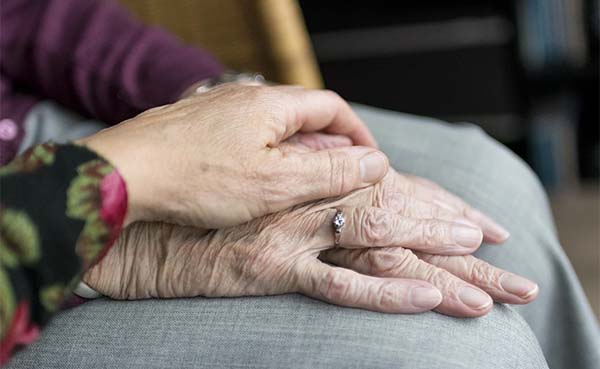There are insufficient suitable forms of housing between home and the nursing home, according to research by Alzheimer Nederland. More than three-quarters of Dutch healthcare professionals and informal carers consider the range of homes and forms of housing for people with dementia to be inappropriate. In the event of deterioration, only the nursing home is an option, but this has been a bridge too far for a long time and there is also great resistance to this. As a result, people with dementia continue to live at home for an irresponsibly long time, resulting in crisis situations.
The Netherlands is facing an enormous housing challenge. Build, build, build: that’s only part of the solution. Hear about the housing needs of the growing group of people with dementia. At present, 290,000 people have dementia, which will rise to half a million by 2040. Most of them (79%) live at home. Alzheimer Nederland conducted research among more than 1,400 people with dementia, informal carers and care professionals into their housing needs. New forms of living are needed that feel like home, but that offer appropriate support when needed.
The step between living at home and the nursing home is too big
87% of healthcare professionals recognize the situation that “people with dementia are often still” too good “. are for admission to a nursing home, but need extra support ??. In addition, people with dementia dread the nursing home enormously. This indicates two thirds of informal carers and no less than 96% of care professionals. There is also a waiting list of 23,000, while more than 5,000 places in the nursing home are not used. Reasons for this are: losing the freedom and self-direction, having to leave the familiar environment and the association with “the last phase”, the death. The offer does not fit. People with dementia therefore often continue to live in their unsuitable home, even though it is actually no longer justified (for a long time). With exhausted caregivers and crisis admissions as a result.
Housing need: freedom and security
There are many challenges on the table. But it is certain that housing assignment and care are two of them. And it is precisely in the connection between housing and care that may also be the solution. Alzheimer Nederland states: New forms of housing are needed, suitable for people with dementia, to which they can move earlier and therefore live at home longer. Julie Meerveld, advocacy and regional aid manager: “Living longer at home is especially suitable”. living with support. We asked informal carers and people with dementia what that looks like. They indicate that this is their own place, where they can move alone or together with their partner. In their trusted neighborhood, where they meet others and can engage in activities. Where they have freedom and control, but can also receive care and support if necessary. Affordability and accessibility are essential. Suitable living is not a luxury. In fact, it ultimately saves money by preventing crisis situations and psychological overload for the caregivers.
Tool for policymakers, housing corporations and municipalities
Housing was one of the central themes of the election, there are plenty of plans and ideas to do more. to build. Julie Meerveld: ?? But before we get into the reflex of building, building and building again, it is time for a good conversation. In this way we create a pleasant place to live, an effective flow through the housing market and suitable housing for people with dementia, which ensures that they live at home longer. Only in this way can we promote the self-reliance of people with dementia and relieve the burden on care. A win-win situation. We have the Wiser living for people with dementia made. Together we have to work to realize suitable forms of housing for people with dementia.



